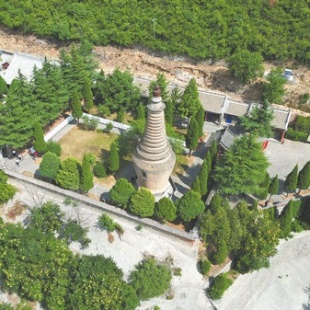Spirit of vitalization


All the 21 buildings in the temple area experienced leaks, with their tiles loosening and cracking. Most of the rafters were no longer viable, and boards became severely rotted.
For Jiao and his colleagues, the most urgent task was to prevent the buildings from collapsing to protect their precious contents.
They wrapped the statues in plastic sheets and, after the rain stopped, steel scaffolding was erected over the most important buildings.
Meanwhile, the provincial government sent 10 teams of experts out to rain-hit areas around Shanxi, where they found that 1,783 ancient buildings had been affected by the storm. A charity project was swiftly initiated, and the Shanxi Ancient Architecture Group won the bid to renovate the temple.
Li Tianshu, deputy general manager of the group, knows it was not easy to restore the temple to its former glory. His team turned to ancient solutions, including methods used by those who originally built them.
In order to retain historical authenticity, the Jincheng City Cultural Relics Protection Research Center set up the country's first ancient building rain and grass prevention experimental base next to the Qinglian Temple in 2022.



































